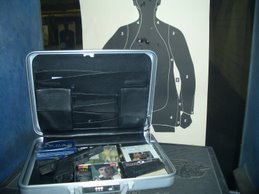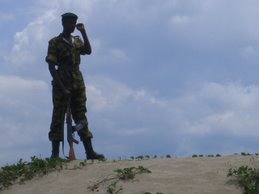Somewhere between A.A. Milne and Joseph Conrad, I went through a Philip K. Dick phase. For the uninitiated, P.K.D. was a paranoid, impoverished, speed freak in San Francisco around the ‘60s and ‘70s. He eked out a living writing pulp science fiction. Well, ‘pulp’ say some; PROPHET say others.
In a world then enamored with the Summer of Love and the Gilligan’s Island, he presaged post-modern madness. His worlds are dark and dystopian, where humanity is held hostage to mega-corporations. The idea that companies would control countries was preposterous in the 1960s, less so now. His novels are also epistemological horror-thrillers, where people (including the reader at times) have trouble discerning (de)illusion from reality. It’s all a bit creepy, if you think about it too long, which is P.K.D.’s aim.
Fittingly, it was Hollywood, the master of illusion, that embraced his vision. Starting in 1982 with Ridley Scott’s
Blade Runner - one of the greatest movies every made - which is about what constitutes a life. Following this, a slew of films were produced based on his work: Total Recall, Minority Report, Paycheck, A Scanner Darkly, and more.
One of the many things that made Blade Runner a revolutionary film and ageless science-fiction flick was its amazing futuristic music. Composed by Vangelis, it is completely electronic and synthesized, much like the synthesized human "replicants" the Blade Runner is hunting. Also, in the early ‘80s, synthesized music was as future-cool as, say, the digital watch.
Sample the music of replicants crying in “Tears in the Rain” by
Vangelis:
An
orchestrated version of Vangelis’s music provides an interesting and no-less successful experience:
Converts joined this future noir, inspiring movies like Aliens II and Johnny Mnemonic; video games like Resident Evil or Doom (which were also turned into movies); and cyberpunk literature, such as author William Gibson. No longer does our future feature the gallant Captain Kirk, bravely going where no man has gone before. Now humanity is enslaved by its own greed, ingenuity, and despair. Ask any Nexus Model 6.
And, yes, P.K.D. exists even in
opera! His supreme novel, VALIS, has been transmorphed into an opera. VALIS (which stands for “Vast Active Living Intelligence System”) was written a year before his death in 1982 (the same year Blade Runner premiered). In many ways it was his spiritual autobiography, weaving together mystical Taoist forces and Gnostic visions that unlock the secret knowledge of the cosmos. For those who want a fuller exegesis of VALIS, start
here.
The
opera VALIS was composed and written by Tod Machover, and premiered at the Pompidou Center in Paris on December 1, 1987. Only one recording of it exists.

So what does a musical interpretation of P.K.D.’s ontological universe sound like? Imagine a collision of Vangelis, Pierre Boulez (modern French atonal composer and conductor), and the amplified sound of a Toyota Prius being crushed by a Hummer.
Also, most of the words are not sung but actually recited, like an over-produced poetry reading. All that is needed are the bongos, a cigarette, sunglasses, black beret, and beat cafe. Not that P.K.D. would be caught dead in such a joint.
But don’t take my word for it. Sample protagonist Fat’s Dream:
Or, just to confirm opinions, Sophia’s Aria:
Small wonder it’s never performed.



















